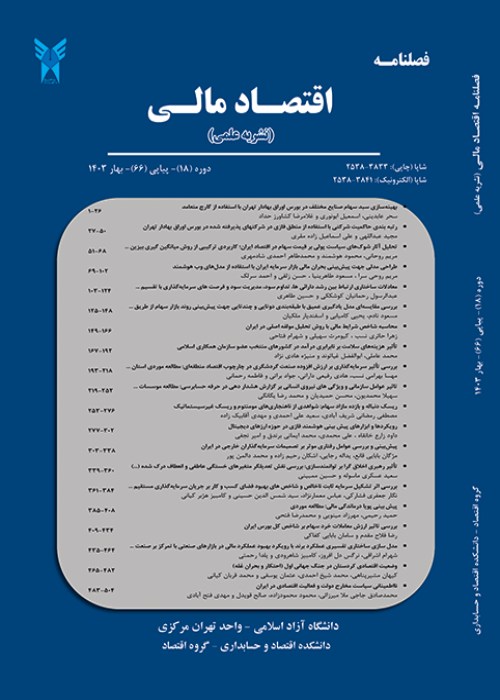Analyzing the Household Mental Budgeting Behavior Based on the Theory of Planned Behavior
Mental budgeting is one of the topics in the field of behavioral economics and emphasizes the psychological aspects of financial accounting. Mental budgeting can play an important role in personal financial management. The purpose of this study is to investigate the household mental budgeting behavior based on the theory of planned behavior. This research is descriptive-survey based on the method of doing and in terms of target, is functional. The population of this study was households of Kurdistan province who were selected by convenience sampling. The research instrument used was a questionnaire. The content validity of the questionnaire was confirmed by a panel of experts. In order to evaluate the construct validity (including convergent and discriminant validity) and the reliability of the research instrument (composite reliability and average variance extracted) and to estimate the research measurement model from exploratory and confirmatory factor analysis through SPSS software version 26 and AMOS version 24 has been used. Structural equation modeling has been used to test the hypotheses. Exploratory factor analysis led to the discovery of five factors (attitude, subjective norms, perceived behavioral control, mental budgeting intention, and mental budgeting behavior) of the 21 components studied. Together, these five factors were able to explain 63% of the total variance. Confirmatory factor analysis confirmed the number of factors and factor loadings of variables. All five research hypotheses were confirmed. The degree to which mental budgeting intention are influenced by other variables in order of importance were: attitude, perceived behavioral control and subjective norms. In addition, demographic variables such as gender, age, education, marriage, employment, income and work experience are also considered as moderating variables in the results analysis. For example, the status of variables such as attitudes, subjective norms, and mental budgeting behavior varied among different ages. The result of this study showed that mental budgeting can lead to the development and strengthening of household financial behavior.
- حق عضویت دریافتی صرف حمایت از نشریات عضو و نگهداری، تکمیل و توسعه مگیران میشود.
- پرداخت حق اشتراک و دانلود مقالات اجازه بازنشر آن در سایر رسانههای چاپی و دیجیتال را به کاربر نمیدهد.


